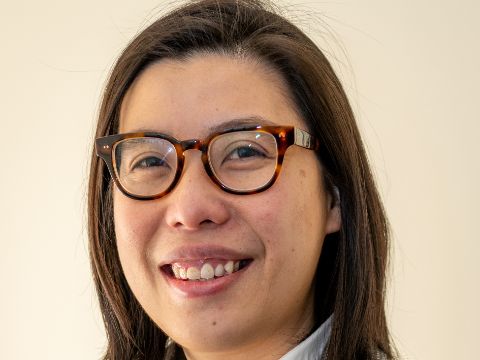Ten Charles Sturt University final-year computing projects provide
community groups and businesses with approximately 3,500 hours of free IT solutions
The projects enhance graduate readiness by exposing students to real
deadlines, scope changes and team dynamics
The client-based computing projects build a pipeline of ‘job-ready,
battle-tested’ graduates for regional employers
The project calls for more community groups and businesses to offer IT problems for computing students to solve for free
Charles Sturt University computer software-engineering students have swapped hypothetical case studies for real clients this semester to deliver digital solutions that will soon be live across regional Australia.
Senior Lecturer in Computing Dr Arash Mahboubi (pictured inset, above) in the Charles Sturt School of Computing,
Mathematics and Engineering said as part of the Bachelor of Computer
Science (Software Development), third-year students were partnered with organisations ranging from grassroots community groups to fast-growing agtech innovators.
Dr Mahboubi said the students’ brief was
simple: build something the client will genuinely use and do it under the same
pressures they’ll face in their first professional roles.
“By letting our students feel genuine deliverable
pressure, we help them convert theory into reflexes ─ problem-solving under
tight timelines, negotiating scope with a client, and collaborating across
disciplines,” Dr Mahboubi said. “Industry wins because they meet graduates
who’ve already proven they can deliver.”
Dr Mahboubi said there were approximately 55 third-year Bachelor of Computer Science (Software Development) students in capstone subject ITC303, which he coordinates, divided into 10 project teams and involved approximately 3,500 hours of donated in-kind collective development.
The students worked semester-long on industry-engaged software projects delivering live digital solutions which included website rebuilds, AI modules, data-dashboards and local council apps, across regional and rural Australia and Canberra.
Some of the business partners and their projects the students worked with included:
Hardwicke Bay
Progress Association (SA) – A fully redesigned, accessible website to boost local tourism and volunteer engagement
Pairtree
(national agtech) – A custom alerts dashboard that unifies weather, biosecurity and supply-chain data in a one easy-to-use view for farmers
Evolutioned
(Canberra/Regional NSW) – An AI-powered module that helps small businesses automate document classification and compliance reporting
Albury City
Council – Three prototype apps:
StreetSweeper App: An APP that provides data on street sweeping activity and allows our teams to report maintenance through an integrated workflow, creating much need efficiency.
Power BI Integration: Development of interactive dashboards that deliver data insights into StreetSweeper operations, including seasonal impacts and service efficiency.
Augmented Reality Experience: An immersive AR experience designed to engage the community and promote education around environmental and cultural significance.
 Final-year Bachelor of Computer Science student Mr Adam Ragg (pictured left) from Sunny Corner near Bathurst led the student team working on the Pairtree project. He said unlike most university assignments, which are usually focused on individual knowledge and short-term deadlines, working with Pairtree felt much more like a real job.
Final-year Bachelor of Computer Science student Mr Adam Ragg (pictured left) from Sunny Corner near Bathurst led the student team working on the Pairtree project. He said unlike most university assignments, which are usually focused on individual knowledge and short-term deadlines, working with Pairtree felt much more like a real job.
“This project really boosted my confidence by
giving me hands-on experience with project management in a real-world setting,”
Mr Ragg said. “Leading the team and working with stakeholders helped me develop
skills I wouldn’t have picked up from coursework alone.”
 Deputy team leader for the Hardwicke Bay Progress Association website uplift project, Ms Aileen Chan (pictured left) from the inner west of Sydney, said she initially felt some trepidation about tackling a group project in her final year.
Deputy team leader for the Hardwicke Bay Progress Association website uplift project, Ms Aileen Chan (pictured left) from the inner west of Sydney, said she initially felt some trepidation about tackling a group project in her final year.
“However, participating in this subject and the
project turned out to be a transformative experience,” she said. “The group
work gave me the opportunity to strengthen my leadership and interpersonal
skills that are essential in life and work where I’ll collaborate with people with
diverse backgrounds and personalities.”
Dr Mahboubi said, “Graduates don’t need another simulated brief, they need the adrenaline and accountability of a live backlog and a real stakeholder.”
Industry partners, such as Pairtree and Albury City Council, see strategic value in the collaboration.
Mr Hamish Munro, founder and CEO of Pairtree, a company that connects farmers and businesses in the agtech world by translating data from different Internet of Things (IoT) and agtech devices and services into a consistent format, said that data can be used in new ways.
“It is great that the third-year students get to work with industry partners and to understand the process of developing a brief into a Minimal Viable Product (MVP),” Mr Munro said.
“Our experience over the last five years with
these teams has been great and very rewarding, as on average, we have employed
one of the team members each year to keep the talent in the bush and hopefully
build our greater capacity outside the metro areas.”
Albury City Council Team Leader Regional Partnerships and Innovation Ms Rochelle Wraith said Council’s ongoing partnership with Charles Sturt University highlights the real value of engaging with students on meaningful, place-based projects.
“These collaborations allow the Charles Sturt
University students the opportunity to apply their learning in real-world
settings, while we gain fresh thinking and practical solutions that enhance our
service delivery,” Ms Wraith said.
“It’s a genuine two-way exchange – building
capability, supporting regional students and delivering outcomes that benefit
our community. We look forward to building on this work into the future.”
Dr Mahboubi believes the model should become the norm for final-year study and said several partners, including Pairtree and Albury City Council, are already in talks to extend collaboration.
“Our communities get solutions they couldn’t
afford, and our students graduate job-ready and battle-tested,” he said. “That’s
how we close the gap between university and industry.”
Dr Mahboubi noted that student demand now outstrips the number of ‘live’ briefs that Charles Sturt University can secure.
“To keep pace, we’re calling for more industry
partners that are able to set a six-month project (run across two teaching
sessions), join a brief online catch-up every fortnight, and give feedback on
student updates,” he said.
“Industry partners’ guidance helps graduates
gain authentic, job-ready experience, while your organisation receives a
valuable, low-cost digital solution.”
Industry or community groups interested to explore this offer can contact Dr Mahboubi by emailing amahboubi@csu.edu.au.

